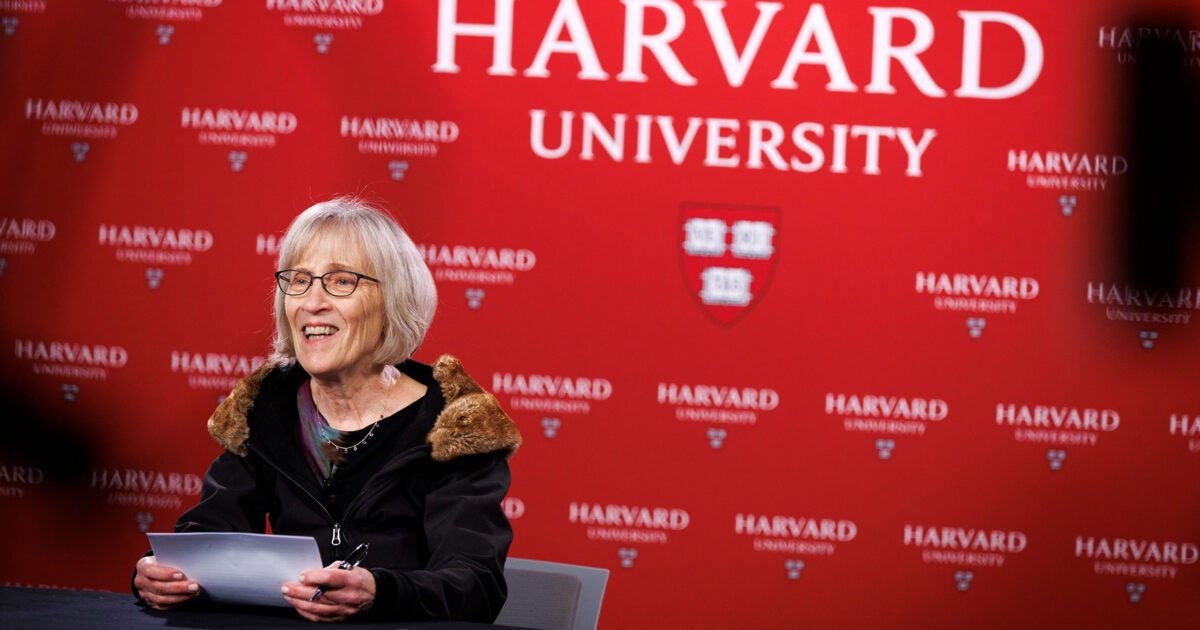Goldin earned her bachelor’s in economics from Cornell University before completing her graduate studies at the University of Chicago. “I worked on many different subjects in the field of economic history before I discovered my true calling … which was the study of women and gender,” she said at the press conference.
It was a collaboration with economic historian Robert Fogel, her mentor and 1993 Nobel laureate, which sparked her interest in working women. Fogel was conducting research for “Time on the Cross,” his 1974 work on the economics of American slavery, while Goldin explored the related topic of slavery in urban settings. That got Goldin wondering why Black women’s labor force participation exceeded that of their white counterparts from Reconstruction through the mid-20th century.
Could this racial gap be explained by differing cultural norms around women’s work established during slavery? Goldin’s answer, published in the Journal of Economic History in 1977, represented her first investigation of women’s labor force participation over U.S. history.
“This was written during a time period in which no one was asking these questions, certainly not in my field,” offered Edward Glaeser, the Fred and Eleanor Glimp Professor of Economics and chair of the Economics Department, who opened Monday’s press conference.
Goldin’s first book on the topic, “Understanding the Gender Gap: An Economic History of American Women,” arrived in 1990. Subsequent mileposts include a 1995 paper on women’s “U-shaped” participation in the labor force over their lifetimes, a 2002 study on the impact of contraception on decision-making around career and family, and the oft-cited 2000 paper “Orchestrating Impartiality,” which tracked the rise of women in classical music with the advent of “blind” auditions, performed behind identity-concealing curtains.
Goldin’s most recent book, “Career and Family: Women’s Century-Long Journey Toward Equity” (2021), charted changes in the mix of work-life arrangements over five generational groups of mostly white, college-educated American women. The book also introduced Goldin’s concept of “greedy work,” in which employers in certain industries demand long hours — and reward the unencumbered (mostly male) workers who provide it.
“It’s not simply what goes on in the family and the home,” Goldin said. “Workplaces haven’t caught up with [rapid changes] either.”
Also mentioned at the press conference was Goldin’s new paper, “Why Women Won,” published by the National Bureau of Economic Research on Nobel Monday. “It was not that long ago that women could be fired not just for being pregnant … but being capable to be pregnant,” she explained. “Women have won a tremendous amount and if you read my paper, you’ll see exactly how that happened.”
“We are enormously proud of what she has brought to this University and to the wider world of knowledge, particularly with regard to gender inequality in work and family life,” said Lawrence D. Bobo, dean of social science and the W.E.B. Du Bois Professor of the Social Sciences. “The Nobel committee could not have made a more fitting selection.”
The call from the Royal Swedish Academy of Sciences arrived around 4:30 a.m., said Goldin, who was sleeping at home with her husband, Lawrence Katz, the Elisabeth Allison Professor of Economics, and their “furry family member” Pika, the couple’s 13-year-old Golden Retriever.
“I could hear her speaking and it sounded like good news,” Katz said as he walked Pika toward Littauer Hall, where colleagues and students waited to cheer Goldin’s arrival.
As Harvard economists gathered Monday afternoon to celebrate Goldin’s achievement, many praised Goldin’s generosity with her time as a mentor, colleague, and community-builder.
In fact, Alex Chan, an assistant professor at Harvard Business School, would later point out that Goldin went to her office after the party to meet with graduate students seeking job market advice.
“Most people would probably be doing only media work and trying to soak in the attention,” Chan said in an email. “But my colleague is such an insanely committed teacher that on the day she won the Nobel Prize she was just working one-on-one with her students all day!”
For her part, Goldin emphasized the importance of these students — whom she called her “muses” — to her work.
“I deeply thank my students — my undergraduates, my graduate students — who push me to the frontiers of knowledge every day,” she said at the press conference “I could never do research, I could never be where I am today, without them.”





